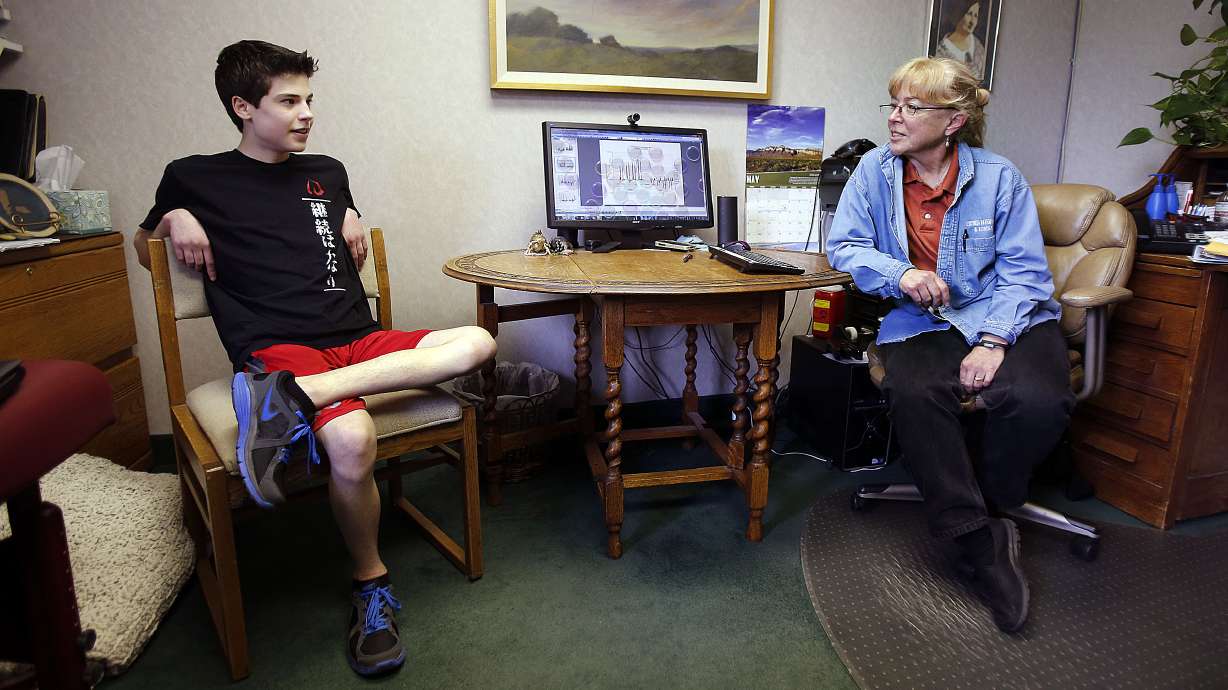Estimated read time: 2-3 minutes
This archived news story is available only for your personal, non-commercial use. Information in the story may be outdated or superseded by additional information. Reading or replaying the story in its archived form does not constitute a republication of the story.
SALT LAKE CITY — Utah Dr. Lucinda Bateman has become renowned for her work on myalgic encephalomyelitis, more commonly known as chronic fatigue syndrome or ME/CFS. On Thursday, Bateman appeared with a panel of experts to discuss a puzzling new medical question: What does ME/CFS have to do with COVID-19?
Months after the pandemic began, some patients made a curious discovery — they weren't getting better. A virus that was supposed to linger for a week or two was, in some cases, causing debilitating symptoms for weeks or months on end.
Such patients started calling themselves "long-haulers," suffering from what doctors often call "long COVID."
At first answers were few, but now common diagnoses for long COVID patients include postural orthostatic tachycardia syndrome, mast cell activation syndrome, and ME/CFS.
At the Thursday online forum hosted by nonprofit group #MEAction, Bateman said she has observed "many overlapping symptoms between long COVID patients and ME/CFS patients."
In a survey, she said, the symptoms most frequently cited by long COVID patients included fatigue, cognitive problems and "malaise" after exertion, all common signs of ME/CFS. Respondents also reported chest symptoms, racing heartbeat, dizziness, insomnia, headaches and muscle aches.
Bateman said of the first 12 long COVID patients she saw at the Bateman Horne Center, 10 met the criteria for ME/CFS "after careful evaluation."
"Two were severely impaired, but most were moderate," Bateman said. But moderate ME/CFS still leaves patients unable to maintain full-time work; moderate patients may be able to have "two to four hours of light upright activity" per day, she said.
COVID-19 is not the first virus to be associated with the onset of ME/CFS, the panelists agreed. Many ME/CFS cases reportedly began with the patient falling ill. "One study on SARS showed that 27% of survivors met CFS criteria several years after developing SARS," the #MEAction website says.
For those who believe they may have ME/CFS, #MEAction encourages them to get diagnosed.
"Treatments that are beneficial for other diseases that long haulers are experiencing, such as POTS, may actually be counterproductive for someone with ME/CFS," the site says, "so getting a diagnosis is important."
The principal symptom of ME/CFS is post-exertional malaise, which is a flare-up of symptoms or the appearance of new symptoms after exertion. #MEAction recommends that patients experiencing ME/CFS symptoms rest as often as necessary and not attempt to "push through" the problem.









